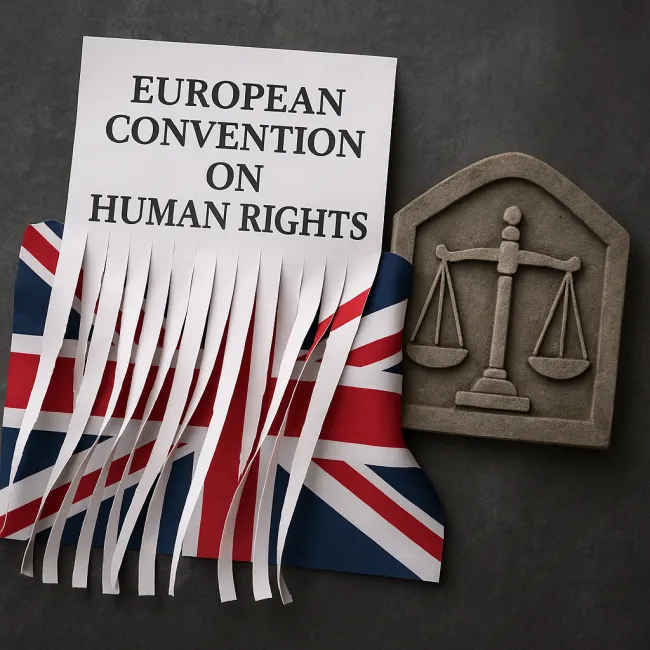
The European Convention on Human Rights (ECHR), a supranational convention established in the aftermath of World War II to defend fundamental freedoms, is increasingly out of step with Britain’s democratic sovereignty and contemporary needs. Its legacy sees it as paramount in the development and widespread awareness of human rights throughout Europe during the 20th century and now into the 21st. While its original intention, protecting human rights against abuses of power, was commendable, it has now evolved into a source of judicial overreach, constraining domestic governance and undermining Britain’s capacity to implement effective national policy. It is therefore my firm belief that Britain should leave the ECHR, reclaiming control over our laws, borders, and democratic accountability.
At the heart of the issue lies the erosion of parliamentary sovereignty. Previously, sovereign nations signing treaties that limit their own judicial freedoms in the name of unity, common good and a common tribunal had certain merit. Especially in the face of the uncertainty in post-war Europe. But times change. Britain’s constitutional framework is built upon the primacy of democratically accountable institutions, particularly Parliament. The Strasbourg-based European Court of Human Rights frequently overrules parliamentary and governmental decisions, imposing interpretations of human rights never sanctioned by British voters. This undermines democratic legitimacy, substituting judicial decisions made abroad for the carefully deliberated judgments of our own elected representatives.
Nowhere is the impact of this judicial interference clearer than in immigration policy. Successive governments have faced significant difficulty in deporting serious offenders and controlling illegal immigration due to rulings invoking rights under the ECHR, especially the frequently cited Article 8, the right to family life. These rulings obstruct our ability to maintain secure borders and uphold public safety, causing understandable frustration among the public and weakening confidence in the rule of law. Uncertainty now grows in what we consider to be a fundamental human right, and what exactly impedes those rights according to the ECHR's ever evolving protocols. And British people are quite fed up with uncertainty.
There are, of course, practical implications of withdrawing from the ECHR. Critics suggest Britain risks diplomatic isolation or that leaving could undermine our international reputation regarding human rights. However, such concerns underestimate Britain’s capacity to uphold and strengthen its own robust human rights protections domestically. Leaving the ECHR would not mean abandoning human rights altogether; rather, it would allow Britain to construct a tailored, democratically accountable framework better suited to our specific national context. This approach would restore legal clarity, reduce expensive and protracted litigation, and realign our human rights framework with democratic legitimacy.
Britain already possesses strong, independent legal institutions capable of protecting fundamental rights. Our judiciary, our Supreme Court, and above all our Parliament remain fully capable of ensuring robust protection without external oversight from Strasbourg. Far from diminishing rights, leaving the ECHR would reinforce their legitimacy and resilience, because protections grounded in democratic accountability inherently carry greater authority and public support.
Ultimately, Britain must face the reality that the ECHR no longer serves our national interest. Its expansive interpretations of human rights clash repeatedly with our democratic decisions, our sovereignty, and our ability to secure our nation effectively. By leaving the ECHR, we can reaffirm Britain’s sovereignty, restore the primacy of democratic accountability, and deliver a human rights framework that truly reflects the will and values of the British people.